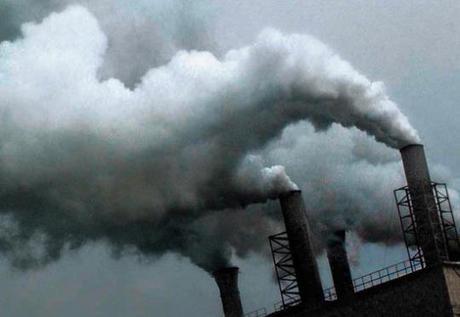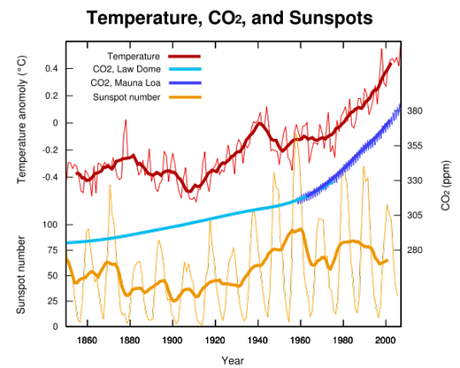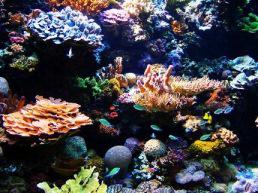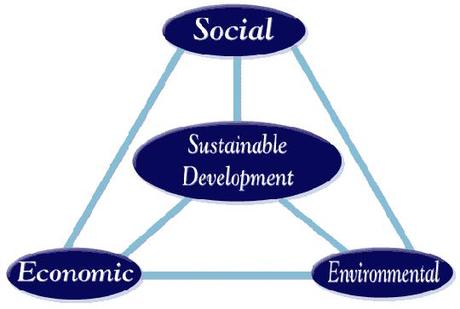
The world has seen fantastic development
Over the last three centuries, human beings have transformed the face of this earth. It has been three hundred years of frantic development on this planet. If our ancestors from the sixteenth century or before were to see our world today, they would not recognise it that it was the same land upon which they had once lived. However, if somebody had travelled from the tenth to the fourteenth century, he would not be surprised so much. Development, which was once gradual has accelerated from the seventeenth century and has been on steroids from the mid-twentieth century. Barring a few hiccups like recessions and depressions, the world’s growth has been on a fantastic upward trajectory.
However, everything comes at a cost and the world has paid a very dear price for all this developmental zeal. We have hit the environment for a six. Global temperatures are rising at an unprecedented rate. Forests are dwindling, coral reefs are shrinking, summers are getting hotter, winters are getting colder and monsoons are getting wetter. The frequency of hurricanes, cyclones, typhoons, blizzards, snowstorms etc. is at an all-time high. The world might have never seen this much development but it also has never seen this much pollution, congestion and concretisation.
My dear readers, human civilisation has never seen the environment in such a pathetic state.

The planet is being ruined
Who is responsible for this mess? It is solely due to the actions committed by the human race. Yes, skeptics will give you all possible reasons from solar flares to lunar alignment and even 2012. Nevertheless, it is time to accept the truth. It is already too late and we are running out of time. All the phenomena, which I had mentioned a while ago, are all of our own doing. The temperatures recorded in the past fifty years have been the highest. Moreover, 2005 recorded the highest ever temperatures in recorded history. One and a half acres of rainforest are lost every second (source: http://www.rain-tree.com/facts.htm). Rainforests are the most important temperature regulators and possess a huge variety of flora and fauna. We risk losing all of them (many species are even yet to be discovered).

This graph is proof of climate change
Moreover, rising temperatures on land has in turn increased sea temperatures as well. Much of marine wildlife is highly sensitive to temperature variations. This has led to migration of aquatic creatures to other places, which places them in great risk to new predators and unfavourable circumstances. Furthermore, coral reefs across the world are being destroyed which disturbs marine ecology on a massive scale.

Do you want these beautiful reefs to die?
If coral reefs are in the tropics, there is action happening at the poles too. Temperatures spiralling out of control have led to melting of the large ice shelves at the North and South Poles. All this ice becoming water is leading to rising sea levels. This threatens to submerge vast areas of cities like Mumbai, Chennai, New York etc. and entire archipelagos like Maldives, Mauritius, Lakshadweep etc. In addition, if this is not enough, the huge glaciers on mountain ranges like the Himalayas, which sustain various perennial rivers like the Ganges and Yamuna, are melting at a breakneck pace. Very soon, these rivers will dry up. On top of that, rising temperatures increases the severity of hurricanes, cyclones and typhoons, makes winters colder and summers hotter.
We are so heavily reliant on fossil fuels in our lives. From dry cleaning to aviation fuel, they are used literally everywhere. The sad thing is they will last only another 50-60 years. Plus, they cause all these phenomena, which I just mentioned. Yet, people do not even make an effort to change. They just want to continue the status quo. But, this cannot continue lest you want the human race to end.
The natural question which comes to your minds is, “Why has all this happened?” Development is good for us but when and where did it go wrong to cause such severe side effects? The answer is in the heading. We have treated environment and development as substitutes rather than complements. We saw them and continue to see them as either this or that. We know from economics the meaning of substitutes and complements. Substitutes are those goods or services that just cannot co-exist. They are mutually exclusive. It is either A or B. On the other hand, complements are those goods or services, which need each other and stay in mutual harmony. This is where we need to change. We need a paradigm shift in how we see development and environment. We still think of them as mutually exclusive things. People say, “If we conserve the environment, how will the country develop?” Sorry sir, but that argument doesn’t hold water anymore.
A change in attitudes is the need of the hour. Can a car run without petrol? Or, is petrol of any use without using it in a vehicle? That’s how we need to visualise and understand the relationship between development and environment. Yes, the world needs to be lifted from poverty. Yes, the world has to be freed of hunger. Yes, we need more roads and better connectivity. However, we also need to conserve the environment and preserve the flora and fauna. The ecosystem is in a fragile state and it needs to be handled with care. Poaching laws (which are very strict, in fact) need to be enforced more efficiently. Felling of trees and its compensation needs to be controlled more effectively.

Sustainable development ensures development and environment are complements and not substitutes
I want you to understand that development does not come at the cost of the environment or that preserving the environment does not come at the cost of development. It is high time we drill this fact into our minds. Not understanding this comes at the cost of the human race. Environment and development must co-exist. I know it sounds repetitive to you but I’ll repeat it until you understand.
The human race has faced several difficulties over the course of its tumultuous history. We have survived economic depressions, eradicated diseases and have even sent people on the moon. When we can do such wonderful things, is asking for preserving the environment too much? If somebody tells you to clean your house, will you crib? Then, why so much resentment when it comes to the environment? As I said, it requires a change in attitudes, a paradigm shift in the way we think.
I present to you below a set of points, which can go a long way in conserving the environment. They aren’t my creation or invention and I’m merely reiterating and emphasising their importance by giving it here. You know them but refuse to follow them. Refresh your memory and have a look at them again. Commit to yourself that you’ll follow them. Make it a habit, not a New Year resolution (because nobody follows them). Make it a part of your system. Breathe them and feel them. If you want your descendants to survive, religiously implement them and preach them. So, here you go:
- I start with the most repeated and most clichéd point. Switch off lights, fans and other electrical appliances when not in use.
- This is a corollary of the previous point. Many people have a habit of switching on all the switches when they go into a room. Have patience. Switch on only those appliances which are required.
- Use public transport and car-pooling wherever possible. Your Mercedes-Benz might be your status symbol but you don’t need to remove it every time you go walking or to the nearby supermarket. Spare a thought for your surroundings.
- Disconnect your mobile phone chargers when complete. Theoretically, they are supposed to cut off the power supply when charging is complete. Practically, they don’t. The amount of power we waste due to delayed disconnection of mobile phone chargers can light up several villages in India.
- Try taking your own plastic bags for shopping at malls, supermarkets and other ordinary shops. Or, if they force you to use only theirs, keep the usage to a minimum. The world is not going to end if a “Reliance Fresh” cover is spotted in a “More. For you” store.
- Don’t dump trash on the road. Look for a trash can or take it home. Please don’t pollute the streets. Thank you.
- Never leave your computers and laptops in “Standby” or “Hybrid sleep”. Use “Hibernate” instead. “Hibernate” takes all your open programs from the RAM into the hard disk and switches off the system (and loads it the next time you switch it on). If standby uses minimal power, hibernate uses no power.
- Spread the awareness and take the lead in community initiatives. Sensitize the residents in your apartments about the environment. Start rainwater harvesting. Install solar water heaters which save a lot of electricity. Remember, little drops of water make a mighty ocean.
You can see how small steps from us can help the environment. They are certainly not everything but they do make a difference. The onus is also on world governments to allot more funds for R&D in renewable sources of energy.
What do you think? Do you agree with the view that environment and development can be complements or do you feel otherwise? Leave your suggestions below or shoot an email at [email protected]. Moreover, ReflectionsPN is now on Blogger as well at http://reflectionspn.blogspot.com. Starting with this post, all articles will be published on WordPress as well as Blogger. If you have a Google account, don’t forget to join ReflectionsPN on Blogger with Google Friend Connect. Also, join the discussion on Facebook at http://www.facebook.com/groups/reflectionspn.
Cheers!!

